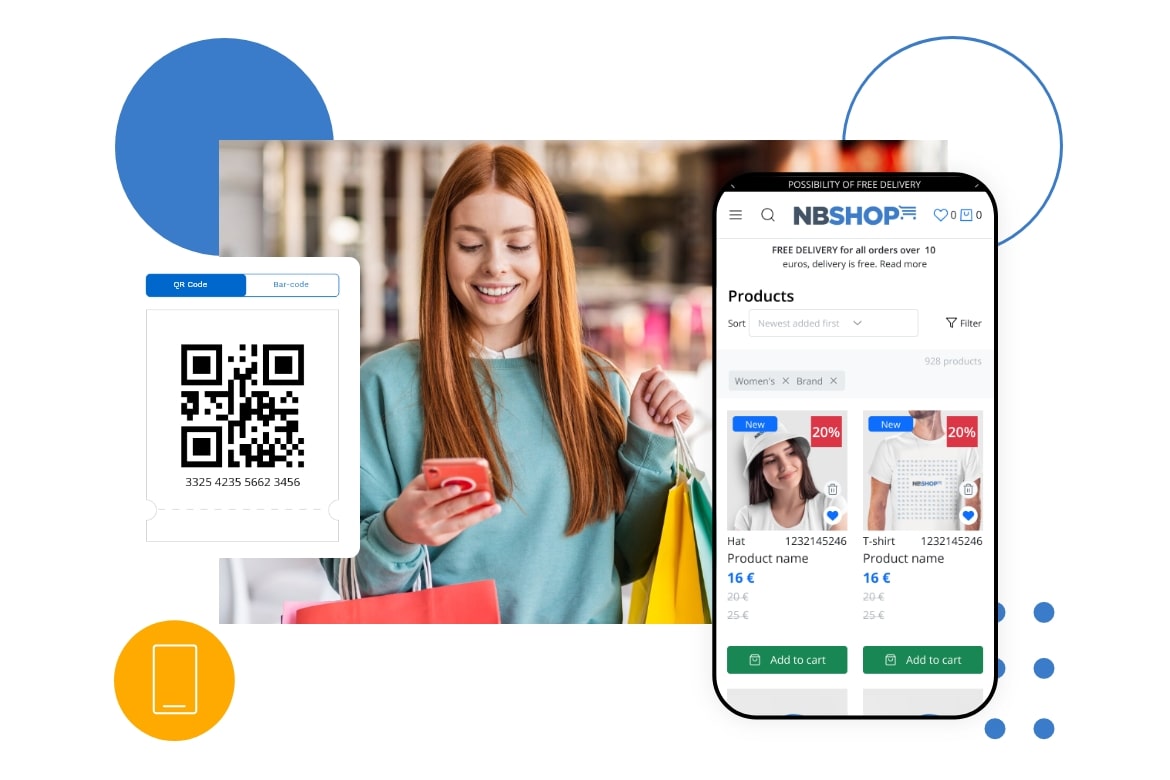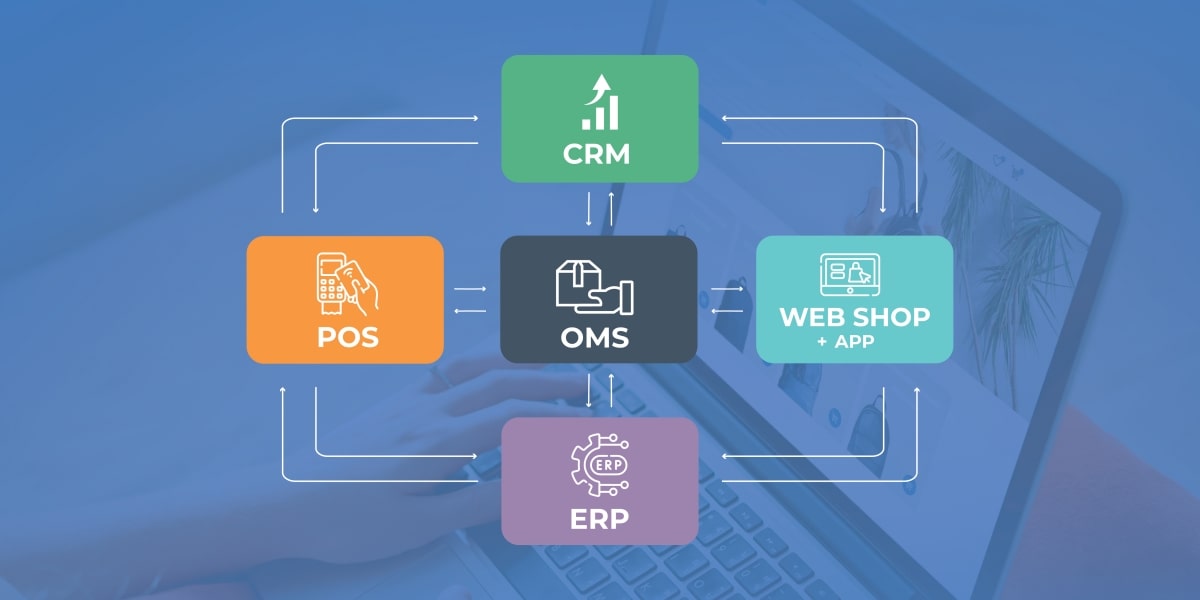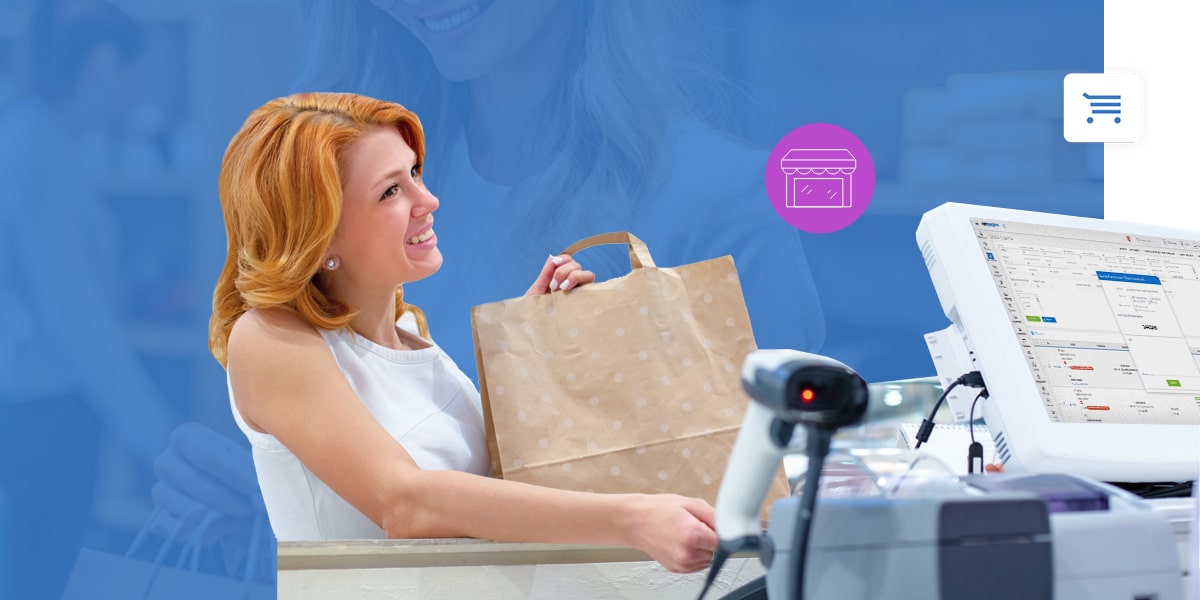The future of e-commerce: Flexible solutions for omnichannel retailers
Written by
Editorial TeamPublished on
The future of e-commerce lies in flexible, integrated solutions that empower omnichannel retailers to deliver consistent and customer-centric experiences. By interconnecting web shops, CRM, OMS, and ERP systems, businesses can streamline operations, ensure seamless transitions across channels, and meet the evolving demands of modern consumers with agility and scalability. (Ad)

Commercial collaboration
As the retail landscape evolves, omnichannel strategies are becoming essential for businesses striving to meet the demands of modern consumers. Retailers are no longer confined to a single channel; instead, they must navigate a complex network of physical stores, online platforms, and integrated services. This article explores the future of e-commerce through the lens of flexibility of available e-commerce solutions, interconnectedness of different sales and communication channels, and most importantly, customer-centricity.
A key aspect of omnichannel sales is the integration of various sales channels. This means that businesses are not only selling products through their websites, applications, marketplaces but also in physical stores, on social media platforms, via email marketing, and other channels. Such integration enables businesses to meet consumers where they are most active, offering them multiple purchasing options tailored to their preferences.
The four pillars of omnichannel success
To deliver a streamlined customer experience, retailers must align their operations around four key pillars:
- Web Shops
Serving as the digital storefront, web shop platforms and shopping applications offer 24/7 access to products and enable personalized shopping experiences through intuitive design and tailored recommendations. By integrating with other systems, web shops can provide real-time inventory updates, personalized offers, and even cross-channel services like in-store pickup for online orders. - CRM Systems
Customer Relationship Management (CRM) tools are the backbone of creating a unified shopping experience. For example, CRM solutions enable consistent conditions and benefits for customers, regardless of the channel they use for purchases. Whether shopping online – either using desktop platforms or mobile applications, in a physical store or via social platforms, customers experience the same pricing, loyalty benefits, and personalized interactions. - OMS
Order Management Systems (OMS) as enterprise solutions overhaul the entire order management process, from creating an order and making a reservation to packing and delivery across diverse channels. As speed, security, and efficiency reign supreme in the fast-paced era of ecommerce, achieving optimal delivery is the ultimate game-changer. - POS and ERP Systems
Modern Point of Sale (POS) solutions are more than just transaction points — they bridge the gap between physical and digital sales. By integrating with CRM and ERP systems, POS solutions can offer features such as synchronized loyalty programs, real-time tracking of inventory, returns, complaints etc.
When it comes to Enterprise Resource Planning (ERP) systems, they ensure operational consistency and efficiency by managing inventory, order tracking, and supply chain processes. When connected to CRM, web shop, and POS solutions, ERP systems enable retailers to maintain accurate data across all channels, helping them meet customer expectations more effectively.

By interconnecting these four pillars, retailers can create a unified ecosystem that simplifies operations and enhances the customer journey. This ensures that no matter where or how a customer interacts with the brand, the experience is consistent, seamless, and tailored to their needs.
Flexibility through integration
Flexibility is the cornerstone of any successful omnichannel strategy. Retailers must be capable of integrating diverse services, from carrier and payment providers to marketing and analytics tools. For instance:
- Carrier Services: Supported integration with multiple carrier services, each offering a variety of delivery options such as standard shipping, parcel lockers, same-day delivery, and more.
- Payment Options: Offering multiple payment methods, including digital wallets, buy-now-pay-later option, credit card installment payments, along with compatible ways and channels for refund.
- Marketing Tools: With support for external marketing services like Google Ads, Facebook Ads, and email marketing tools, e-commerce solutions can centralize campaign management, enabling consistent and personalized messaging tailored to customer behavior across all touchpoints.
Such integrations streamline the experience for both retailers and their customers, reducing friction and ensuring consistency at every touchpoint.
Stability and scalability
A robust technical architecture is essential for maintaining trust and operational efficiency. Scalability ensures that systems can handle increased traffic during peak periods, such as Black Friday, while real-time communication across platforms minimizes errors. For example:
- Retailers can quickly update inventory levels across all sales channels.
- Customers receive immediate order confirmations and delivery updates, enhancing transparency and trust.
- Customers can track loyalty points and redeem them at any time, whether shopping online or in-store, without any doubt that their benefits will temporarily become out of reach, or their customer rights jeopardized.
Stability and scalability together build customer trust, as shoppers consistently experience reliability regardless of external pressures.
Consistent and high-quality customer experiences
The ultimate goal of an omnichannel approach is to deliver a consistent and high-quality experience, regardless of how or where a customer interacts with a brand. Intuitive, user-friendly solutions supported by automation can achieve this by:
- Simplifying transitions between channels, such as enabling customers to check in-store availability online or redeem loyalty rewards across different digital channels, such as marketplaces and loyalty applications;
- Providing features like touch-in-store screens, click-and-collect options, and e-gift vouchers and loyalty cards, which enhance convenience and engagement.

Real-world applications
Several examples illustrate how a well-integrated omnichannel strategy, backed-up with process automatization, can transform customer experiences:
- A shopper can use an online platform to locate a product in a nearby store, reserve it, and pick it up within hours thanks to the click-and-collect delivery method. This not only saves customer’s time and money, but also provides the convenience of ensuring the product’s availability before visiting the store.
- Loyalty customers can obtain loyalty points while shopping in-store, which can earn them an e-gift voucher that can be used by the same customer, or even forwarded as a gift to another user. Intertwined channels assume that e-gift vouchers can be used online, as well as for in-store shopping.
- Large touch screens within stores and high-traffic locations can make your shopping application accessible and provide innovative product showcases to potential customers, along with ensuring effortless order placing.
- Your in-store and field sales teams can be empowered to seamlessly create orders through the app for both B2B and B2C customers not just via large screens, but also via tablets – whether products are currently unavailable in the store or the customer prefers a later delivery to their address or another location, flexible solutions that can be easily used on different devices can help with minimizing missed sales and delivering a positive user experience to your customers, regardless of the time or situation.
- During high-demand periods, automated systems based on advanced algorithms are capable of dynamically selecting the most efficient delivery method, based on factors such as location, order urgency, and carrier availability. This ensures timely deliveries, reduces logistical bottlenecks, and maintains customer satisfaction even during periods of peak sales activity
Preparing for the future
Omnichannel sales, which combine physical and digital sales channels, have become a critical strategy for enterprise retailers. By leveraging omnichannel capabilities, retailers can reach a broader spectrum of consumers and provide a consistent shopping experience.
As the e-commerce landscape continues to evolve, retailers must embrace flexibility and automation to stay competitive. By adopting integrated systems that support seamless omnichannel operations, businesses can meet customer expectations, improve efficiency, and foster long-term loyalty.
About NB SHOP
NB SHOP is an e-commerce platform, designed for customization to meet the unique needs of our clients, offering a seamless retail and customer experience across various touchpoints through an omnichannel approach.
Our solutions, including web shop platform, CRM, as well as shopping applications designed for mobile and large in-store touch screens, with our OMS as the core component, offer user-friendly and flexible architecture for business scaling. NB SHOP allows its clients to incorporate new features effortlessly, integrate with payment, ERP solutions and carrier service systems in order to stay ahead in the dynamic landscape of digital commerce.
Developed by NB SOFT, a reputable Belgrade-based company, NB SHOP platform serves numerous clients across 17 European countries.
***


